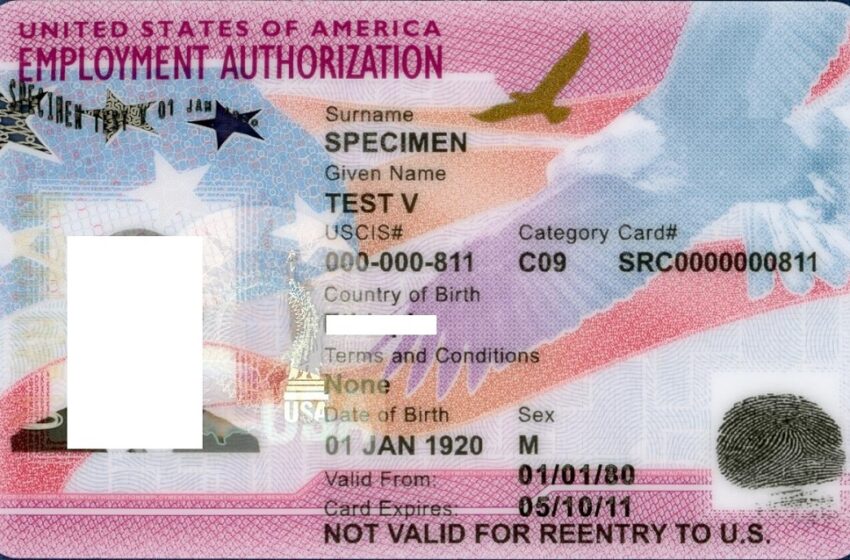Automatic extension of immigrant work permits increased to 540 days

Days ahead of the April 24 expiry of a Covid-era rule, the Biden administration Thursday announced an extension of work permits for certain categories of immigrants including those from India, potentially preventing hundreds of thousands of people from losing their jobs overnight.
United States Citizenship and Immigration Services (USCIS) published a temporary final rule in the Federal Register on April 4 automatically extending the validity of Employment Authorization Documents (EADs) from 180 to 540 days.
The temporary measure will prevent already work-authorized noncitizens from having their employment authorization and documentation lapse while waiting for USCIS to adjudicate their pending EAD renewal applications and better ensure continuity of operations for US employers, the immigration agency stated.
READ: 68 Democrats push White House to extend work permits (April 3, 2024)
“This is the latest step by the Biden-Harris Administration to get work-authorized individuals into the workforce, supporting the economies where they live,” it said.
“Over the last year, the USCIS workforce reduced processing times for most EAD categories, supporting an overall goal to improve work access to eligible individuals. However, we also received a record number of employment authorization applications, impacting our renewal mechanisms,” said USCIS Director Ur M. Jaddou.
“Temporarily lengthening the existing automatic extension up to 540 days will avoid lapses in employment authorizations. At the same time, this rule provides DHS with an additional window to consider long-term solutions by soliciting public comments, and identifying new strategies to ensure those noncitizens eligible for employment authorization can maintain that benefit.”
This temporary measure will apply to eligible applicants who timely and properly filed an EAD renewal application on or after Oct. 27, 2023, if the application is still pending on the date of publication in the Federal Register.
A timeline and history of H-4 EAD (January 27, 2021)
The temporary final rule will also apply to eligible EAD renewal applicants who timely and properly file their Form I-765 application during a 540-day period that begins with the rule’s publication in the Federal Register.
Absent this measure, nearly 800,000 EAD renewal applicants – including those eligible for employment authorization as asylees or asylum applicants, Temporary Protected Status (TPS) applicants or recipients, and green card applicants – would be in danger of experiencing a lapse in their employment authorization, USCIS stated.
About 60,000 to 80,000 employers would also have been negatively impacted as a result of such a lapse. EADs are generally valid for the length of the authorized parole period. This TFR does not extend the length of parole.
READ: Google leads push for work permits for spouses of H-1B holders (May 17, 2021)
Advocates, mayors and business leaders were growing uneasy with an April 24 deadline when some workers would have started to lose their authorization.
It’s the second time the Biden administration has announced an extension to 540 days. The first extension, announced in 2022, had a sunset on Oct 27, 2023, when automatic extensions reverted to 180 days.
All categories of immigrants covered by the 2022 extension will be covered by the new one as well. The implementation of 540-day extensions now also means the problem is unlikely to reoccur. Since September, USCIS has been granting five-year EADs to eligible immigrants, rather than the two-year EADs that were standard before.
That gives USCIS a bigger cushion to prepare for any future potential mass expiration of EADs.
Since the end of the 2022 extension, administration officials were flooded with letters from members of Congress, mayors, advocacy groups, and the business community asking to reinstate the 540-day extensions.
When the 2022 extension was announced, a USCIS spokesperson told The Hill, some EADs had already expired, causing immigrants to lose their jobs and disruptions in business operations.
This time around, the new rule will be effective April 8, a few weeks short of the 180-day mark for EADs that expired after the October sunset. Active extensions granted for 180 days will retroactively convert to 540-day extensions.
The longer extensions have been eagerly awaited by groups ranging from the US Chamber of Commerce to individual asylum seekers.

